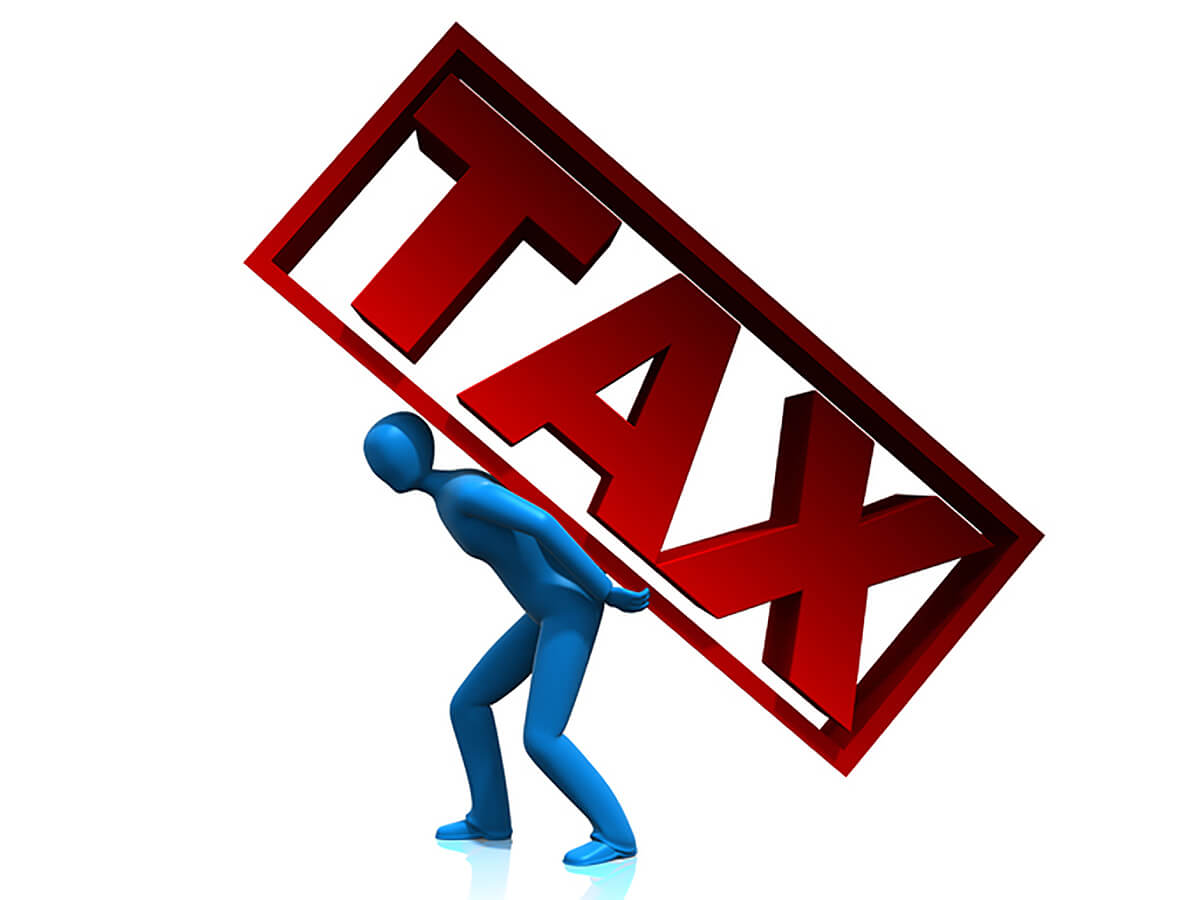The Chancellor has made a tax break for businesses investing in plant and machinery, including trucks and vans, permanent and announced a cut in employee national insurance (NI).
Delivering his Autumn Statement to MPs in the House of Commons, Chancellor Jeremy Hunt, labelled the full-expensing policy the "largest business tax cut in modern British history".
Companies will effectively be rewarded with up to 25p off their tax bill for every £1 that they invest, which amounts to a tax cut of over £10 billion per year, according to the Treasury.
The Government introduced the super deduction in 2021, to incentivise business investment.
At Budget 2023, the Government replaced this with full expensing for three years from April 1 2023, allowing businesses to write off the full cost of qualifying plant and machinery investment.
The Chancellor has now decided to make this change permanent, meaning that items such as forklifts, tools and computers, as well as vans, trucks and tractors, will be able to be fully expensed against taxable profits.
However, cars remain exempt from this scheme as are vehicles that are bought with the intention that they will then be leased. This means that leasing companies cannot reduce their tax bills accordingly – and pass on the savings to their customers.
Stephen Haddrill, director general of the Finance and Leasing Association (FLA), welcomed the move on full expensing and said the trade body had also made the case for leasing to be included in the regime.
"The Government has agreed to publish a technical consultation to seek further input from stakeholders," he added.
"This is a positive move. Full expensing without leasing does not give firms access to the full range of finance options at the point when they need to be choosing the most effective and efficient option for their circumstances and investment objectives.”
Gerry Keaney, chief executive of the British Vehicle Rental and Leasing Association (BVRLA), says that the Government is banking on permanent full expensing to unleash a wave of new business investment across the UK.
However, he said: "By excluding rental and leasing it is missing a massive opportunity. Our research shows that opening these powerful tax incentives up to the rental and leasing sectors could unlock an additional £1bn worth of investment into low and zero emission commercial vehicles.
“We will continue to work closely with HM Treasury and HMRC on their technical consultation and push for the unfair vehicle rental and leasing exclusion to be removed.”
Paul Hollick, chair of the Association of Fleet Professionals (AFP), believes that the Autumn Statement was about "cementing the idea – if not necessarily the reality - of economic recovery" ahead of next year’s election.
“The measures taken, especially those to encourage investment, are to be welcomed in general terms and some businesses operating fleets will no doubt take advantage of them," he said.
"However, it doesn’t change the underlying truth that the economy remains in pretty poor shape and that while inflation is falling, it remains relatively high.
"There’s also little in there to specifically support the motor industry or the fleet sector, although the £2bn allocated to EV manufacturing is to be welcomed and the planning changes for chargers could potentially speed rollout.”
Capital allowances consultation
HM treasury and HMRC have launched a full expensing technical consultation alongside the policy to determine whether broader changes could be made to simplify the existing capital allowances legislation, principally the Capital Allowances Act 2001.
They say that there remains a sustained role for writing-down allowances, given that: historic expenditure will remain pooled - some expenditure does not qualify for first-year allowances; the balance of expenditure for the 50% first-year allowance for special rate expenditure is added to the pool to allow writing down allowances to be claimed; and claiming the full expensing first-year allowances will not always be right for every business, and there may be reasons why a company chooses not to claim.
The Government says that the consultation on the legislative implications of permanent full expensing is not intended to extend the scope of expenditure that is eligible for capital allowances, or for specific capital allowances such as the policy design of full expensing (100% or 50% first-year allowances).
It stressed it was not proposing changes to the rates of the Annual Investment Allowance, full expensing, first-year allowances and writing down allowances currently available.
While HM Treasury and HMRC are open to receiving evidence from businesses on their experience of the tax system, substantive reform of capital allowances and other policy levers outside them are not being considered as part of this process, it added.
National insurance cut

The Government has cut the main rate of Class 1 employee national insurance contributions (NICs) from 12% to 10%.
The Chancellor said that the current combined rate of income tax and national insurance contributions (NICs) for employees paying the basic rate of tax is too high at 32%.
It means that the average worker on £35,400 receiving a tax cut in 2024-25 of more than £450, with the measure being introduced from January 6, 2024.
There were also changes in NI for the self-employed, including a cut to the main rate of Class 4 self-employed NICs from 9% to 8% from April 6, 2024.
EV charging and planning

There was also good news for electric vehicles (EVs), with £2 billion of funding earmarked for manufacturers of zero emission vehicles.
The Government says it will also look to remove unnecessary planning constraints by accelerating the expansion of EV charging infrastructure and will consult on amending the National Planning Policy Framework to ensure the planning system prioritises the rollout of EV charge points, including EV charging hubs.
Substantive action is required to address the lengthy wait to connect to the electricity grid, it said.
As a result, the Government says it will reform the grid connection process to cut waiting times, including freeing up over 100GW of capacity so that projects can connect sooner.
This, it says, will help to enable the significant majority of projects to get their requested connection date with no wait and, for viable projects, reduce overall connection delays from five years to no more than six months.
Edmund King, AA president, said: “To help smooth the electrification journey, The AA welcomes plans to speed up access to the Grid, investment in zero emissions within the automotive industry and funding to attract new engineers into the sector.
“We would still like to see incentives for drivers to help them to take part in the zero-emission transition when they are ready to do so. Hopefully these incentives, a further freeze in fuel duty, and a cut in Insurance Premium Tax will be outlined in the Spring Budget.”
Fuel duty

Among the 110 measures to "help grow the British economy" from the Chancellor, there was nothing on fuel duty.
With fleets facing record pump prices at the start of last year, fuel duty was cut by 5ppl in by the then Chancellor, Rishi Sunak, after being frozen at 57.95ppl since 2011.
The Government used this year’s Budget to freeze the main rate again – and extend the temporary cut.
However, with no mention of fuel duty, fleets will have to wait to see what next spring’s Budget will bring.
Matthew Briggs, CEO at fuel card provider Right Fuel Card, said: “We’re disappointed not to see any further cuts in fuel duty today, particularly for commercial users.
“Increases in fuel prices have had a direct impact on the stability of many businesses, therefore, we support the calls made by the Road Haulage Association (RHA) to implement an essential user rebate to support our customers at a time of economic stagnation.
“Although pump prices have seen a small decline, they’re still very much a cause for concern.2
“Given that the current fuel duty cut only remains guaranteed until March 2024, it’s disconcerting not receive any clarity on the longevity of these discounted rates whilst customers still combat increases in costs across the board, from groceries to energy bills and businesses still face cash flow uncertainties.”
Gordon Balmer, executive director of the Petrol Retailers Association (PRA), highlighted how events in Ukraine and the Middle East continue to create volatility in the fuel market.
He added: "While we are disappointed that no advance announcement has been made to freeze fuel duty, we look forward to persuading the Chancellor to make the announcement in his Spring Budget.”
Minimum wage
Some details of the Autumn Statement had already been revealed, including a 9.8% increase to the minimum wage to £11.44 per hour.
The new rate, which comes into force in April, will also be expanded to 21 and 22-year-olds for the first time.
Sue Robinson, chief executive of the National Franchised Dealers Association (NFDA), said: “Today’s announcement by the Chancellor to increase the National Living Wage for workers aged 21 and over, rising from £10.42 to £11.44 an hour, will have a profound and positive impact on the lives of the workforce in the automotive.”
Economic forecasts
The Office for Budget Responsibility (OBR) forecasts inflation to continue to fall gradually. After reaching a peak of 10.7% in Q4 2022, CPI inflation is expected to be 4.8% in Q4 2023 and fall further to 2.8% in Q4 2024.
It expects CPI inflation to average 1.8% over 2025 before returning to the 2% target in the medium term.
Compared to Spring Budget 2023, the OBR also forecasts that borrowing is lower on average across the forecast and debt as a proportion of GDP is lower in every year.
Philip Nothard, chair of the Vehicle Remarketing Association (VRA), said: “It was encouraging to see a £2bn investment in zero emissions manufacturing although given the scale of global spending on EV investment, this is a relatively small amount.
“There’s also no sign of additional help to support electric cars in the used car sector.
“We know that large numbers of EVs are about to enter the remarketing cycle and that there isn’t necessarily the demand in the market to soak up that volume.
“Measures such as subsidies or interest free loans may be needed at some point before the end of the decade.”






















Login to comment
Comments
No comments have been made yet.